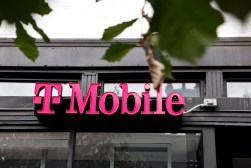
Cognitive Computing
Miami-Dade County, Florida
Miami-Dade County, Florida,is among a growing group of governmentslooking to cognitive computing to ingest massive amounts of data and field simple citizen requests, with an eye on expansion to more complicated tasks.
The countys water and sewer departments rolled out interactive chat agents based on IBMs Watson tool to offer assistance to citizens through their website. Tech officials in the county input documents, data and frequently asked questions from the department’s database into Watson, and then ready the service to respond to citizen requests.
IfWatsonis either unsure of how to handle a citizen request or is otherwise unable to complete it, the user is connected with a government employee who can.
Officials report that this implementation is only the beginning. If the platform continues to expand, Watson could also be used by the county to evaluate water and sewer plans and permits before a human makes a final examination.

Predictive Analytics
New Orleans, Louisiana
A recent uptick in violence in New Orleans has given the city’s NOLA for Life project new purpose as it attempts to lower the murder rate with predictive analytics. The program, funded with a $4.2 million from Bloomberg Philanthropies, identifies people who may be at high risk for committing crimes. The tool uses data taken from social networks to identify known criminals and then uses the insights gained to guide service priority within the city’s social services departments. By offering services to its most vulnerable populations, the city hopes to reduce the conditions that could precipitate violent crime.
Support on the project comes from Andy Papachristos, a Yale University sociologist specializing criminal networks, Robin Engel at University of Cincinnati Institute of Crime Science, and David Kennedy, the director of the National Network for Safe Communities. Their expertise has helped to create a mapping algorithm and social support program that the city said helped reduce murders by 20 percent in 2013, to 155. The number of murders the three following years were 150, 164, and 175, respectively, according to the Times Picayune. Still committed to the promise of predictive analytics, the city plans in coming years to enhance the programs response efforts to halt the statistical rise.

Smart Guns
San Francisco, California
Late in his second term, President Barack Obama announced federal government efforts to encourage innovation in the firearms technology space. In response, San Francisco Mayor Ed Lee called on his fellow cities to join him in a new push to use tech to reduce gun violence and bypass federal gridlock on the gun control issue.
One of those efforts was to make San Francisco a hub for smart gun technology including gun safety measures like biometrics designed to restrict who can useguns and ammunition tracking technologies.
Lee issued an executive directive to change the way the city buys guns and ammunition and included a stipulation that manufacturers must provide to the city government their activities and goals with respect to gun safety and ammunition tracing technologies.
Though the topic remains controversial, the proliferation ofreliable and inexpensive fingerprint readers on smartphones threatens to eliminate any technological concerns that remain in the coming years.

5G
State of Rhode Island
As Americas appetite for data grows, thesmallest state positions itself as a leader on the next generation of wireless connectivity. In November, Rhode Island announced requests for information and an intention from the governors office to use 5G wireless technology as a means to support public infrastructure and to build the local economy.
“We are sending a signal that Rhode Island is open for business as a lab state for innovation the ideal place to test new technologies like 5G wireless,” Gov. Gina Raimondo said upon announcement.
With no existing standards for 5G, the technology hovers somewhere between bleeding-edge and emerging, but the growing tide of internet usage and great number of connected devices in pockets and on desktops make 5Gs arrival inevitable. The Next Generation Mobile Networks alliance recommended 5G wireless begin deployment by 2020 with data rates of 100 megabits per second for metropolitan areas. Building early efforts around the technology now, Rhode Island secures an instrumental seat in development of what will be one of the near-futures most important tools.






